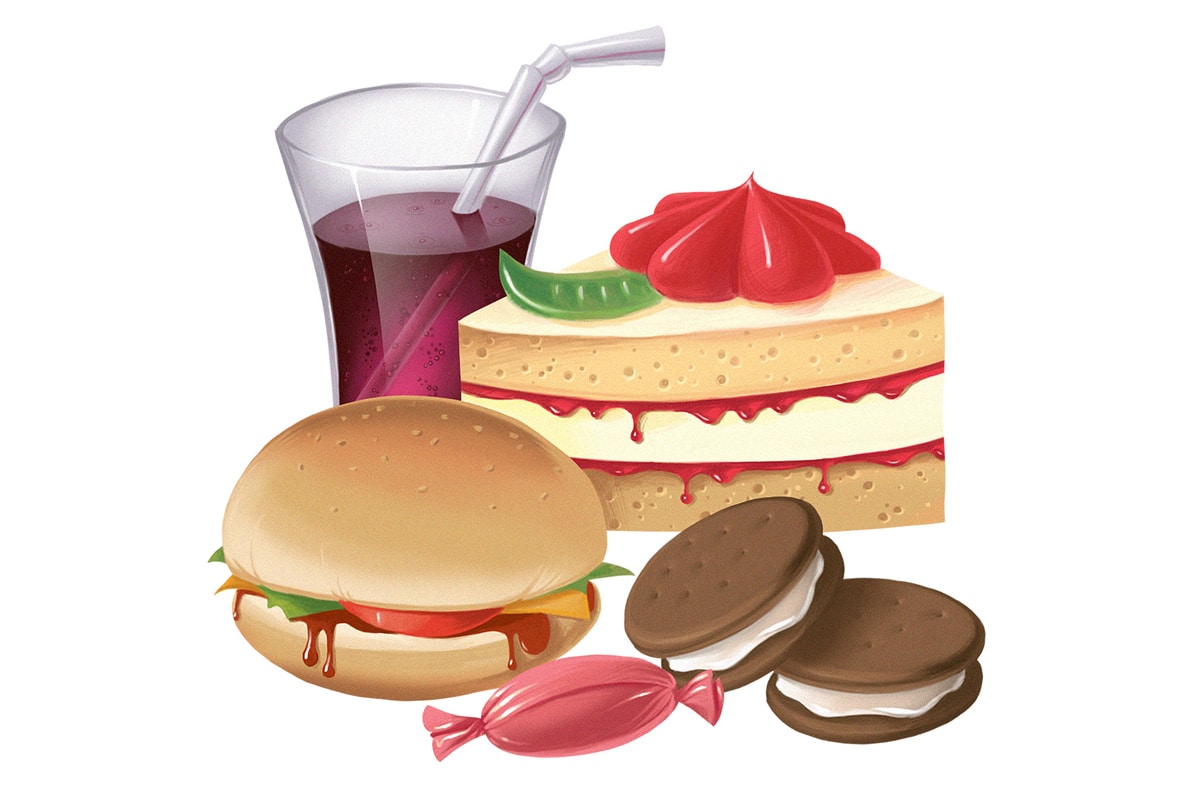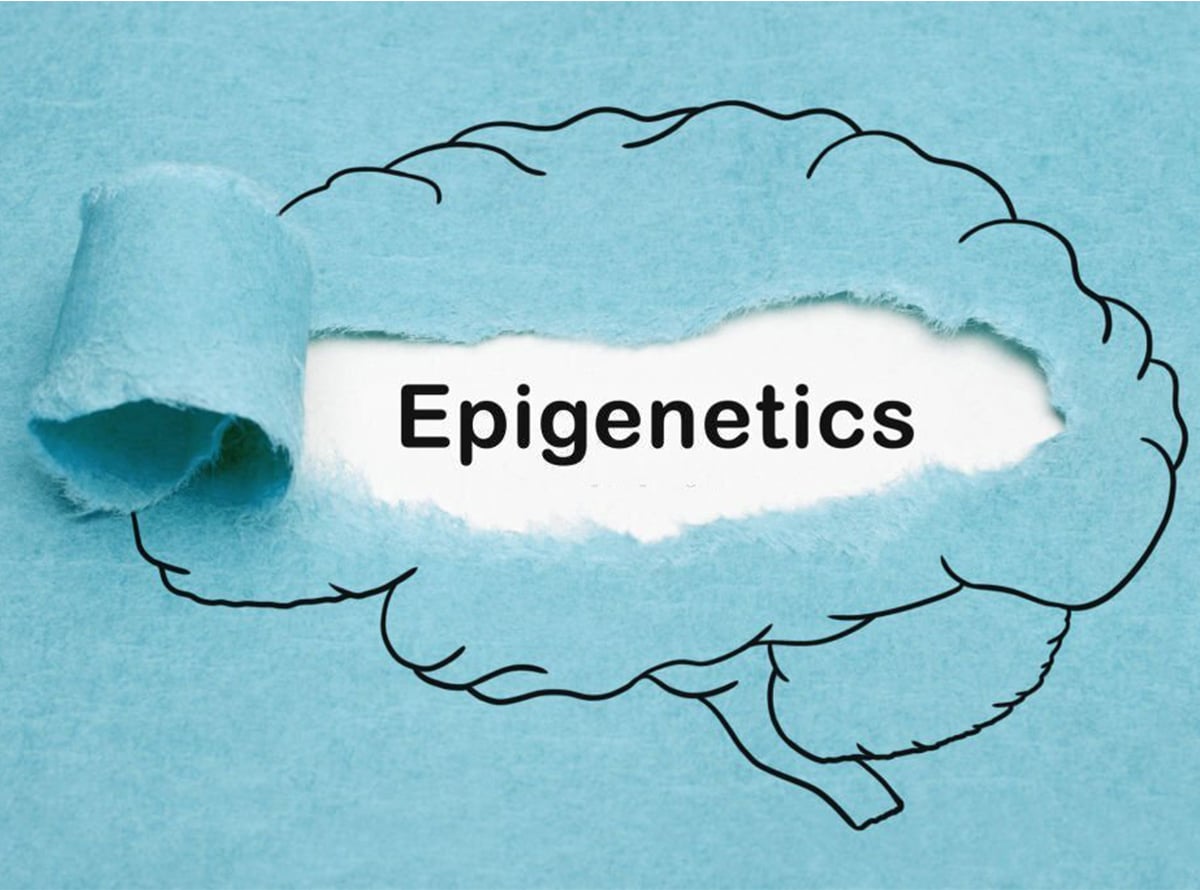In the fall of 1944, a German blockade cut off food supplies to the western part of The Netherlands. Food rations plummeted to 1000 calories per day by November, and 500 calories per day by April. And this wasn’t 500 calories of fresh vegetables and high-quality animal protein; it was 500 calories of bread and potatoes. The immediate crisis ended in May, when Allied troops liberated the country and immediately restored the food supply, but the long-term effects of the “Hunger Winter” continued – not only for the people who survived it, but for their children.
Children born to women who survived the famine are more likely to have diabetes, obesity, blood lipid disorder, high blood pressure, schizophrenia, and other psychiatric disorders. These children never experienced famine themselves, and grew up in a basically prosperous country with plenty to eat. But the extreme food scarcity that their mothers survived, even for just one winter, actually changed the expression of their genes, making them better-adapted to hoard calories and survive a famine – or better-adapted to hoard calories and become obese in a period of abundance.
The story of the Hunger Winter doesn’t involve any dramatic changes to the actual genome of the people involved. But it does involve differences in gene expression. Just having a gene for something doesn’t necessarily mean that gene will be expressed. That’s controlled by something called the epigenome – that’s the complicated set of chemical “switches” that determines whether genes will be switched on or off. And where an individual person’s genome can’t be changed, their epigenome can.

For the children born to women who survived the Hunger Winter, epigenetic changes that were adaptive to famine conditions made them more likely to become overweight in the very non-famine conditions of their actual lives. Other factors that affect a pregnant woman’s health can also affect gene expression in her children. Deficiency of micronutrients can also have epigenetic consequences even if the woman is eating enough calories and not underweight. So can smoking, diabetes and obesity, stress, and all kinds of other things. Deficiency of micronutrients + overload of processed food is a double whammy.
And by the way, gentlemen, none of this is restricted to mothers: gene expression can be affected by the father too, with important effects on the children’s metabolic health down the line.
The importance of both parents’ diet for the epigenetic health of their children has given rise to something called the “fetal origins” hypothesis of obesity: epigenetic programming before birth can predispose children to obesity by turning on or off different genes, even if their actual genotype is unchanged. But even though it starts in the womb, gene expression can be affected by diet and lifestyle choices at any age.
Epigenetics doesn’t completely explain weight gain or loss, but it’s an important factor to consider – a healthy diet and lifestyle should be one that predisposes people to a healthy weight. Here’s a very brief look at how nutrition and lifestyle factors can influence gene expression in ways that affect body weight and metabolism.
Feed your Epigenome
A lot of studies focus on the epigenetic consequences of a mother’s diet for her baby. But actually, diet and lifestyle factors can influence epigenetics in adults, too, regardless of what their mothers ate. This study goes into some of the different ways that diet can modify the epigenome, with a focus on the metabolic effects: what kinds of epigenetic factors drive obesity and diabetes, and what kinds of nutritional strategies will modify them in the right direction?
Some of the most important genes regulating fat cell creation, body weight, appetite, metabolism, and inflammation are regulated by epigenetic factors. Controlling whether those genes are turned on or off could substantially change a person’s tendency towards obesity. The actual biological processes that affect gene expression are very complicated, but according to the authors, the most important individual nutrients in this regard are…
| Nutrient | Paleo food sources | Affects insulin metabolism? | Affects fatty liver? | Affects fat accumulation/obesity? | Affects inflammation? |
| Micro- and Macronutrients | |||||
| Betaine | Beets, broccoli, spinach, and shellfish | X | X | ||
| Choline | Fish, shellfish, eggs, and poultry | X | |||
| Folate (Vitamin B9) | Green vegetables | X | X | ||
| Methionine | Egg whites, poultry, fish | X | X | ||
| Vitamin B12 | Red meat, egg yolks | X | X | ||
| Antioxidants | |||||
| Curcumin | Turmeric | X | X | ||
| E3g | Green tea | X | X | X | |
| Genistein | X | ||||
| Resveratrol | Red wine, dark-skinned berries | X | X | ||
| Sulforaphane | Cruciferous vegetables (e.g. broccoli, cauliflower, and cabbage) | X | |||
| Other | |||||
| Butyrate and short-chain fatty acids | Butter, and indirectly from fibrous vegetables. | X | X |
Sugar intake is also important: a high-sugar diet is bad news; a high-fat and high-sugar “cafeteria diet” is even worse.
Take it all together, and that sounds like the best diet for anti-obesogenic gene expression would be rich in vegetables and animal protein, and low in simple sugars, which is basically what Paleo recommends.
Lifestyle Factors and your Epigenome
Food isn’t the only factor affecting epigenetic expression. Just like everything else, your epigenome is affected by your entire environment. Other factors that can produce epigenetic effects include heavy hitters like…
- (Bad) Stress and trauma
- (Bad) Sleep deprivation
- (Good) Environment and mental stimulation
- (Good) Exercise and physical activity, which doesn’t just affect your body; it also affects expression of genes relevant for mental health.
- (Bad) Exposure to environmental estrogens, like BPA.
You might recognize this list as basically a list of “environmental factors that contribute to [fill in chronic disease of your choice here]” – that’s essentially what it is. Gene expression is important!
Paleo for Epigenetic Health
Paleo is an effective “epigenetic diet and lifestyle” because it supplies important nutrients for anti-obesogenic gene expression, and also stresses lifestyle factors like quality sleep and regular exercise. Eating high-quality meats and vegetables will basically take care of the micro- and macronutrients in the chart above; getting plenty of fiber and butter will do you just fine for short-chain fatty acids. Add in some effective stress management, regular sleep, and regular exercise, and you’ve basically got a recipe for normalizing epigenetic expression.
To put it another way, following Paleo-style recommendations for diet and lifestyle is basically the exact opposite of the Hunger Winter diet: sufficient protein, fat, and calories, adequate micronutrient intake, and low stress overall. And at least in rats, switching away from a junk-food-style diet (high fat + high sugar) to a normal diet can reverse epigenetic changes, so even if you’ve been programming your genes in an obesogenic direction for the past several years, the changes aren’t irreversible.

This is particularly significant for couples who want to have children. But the point of learning about epigenetics isn’t to throw even more stress and shame and judgement on pregnant women: that doesn’t help anyone. It’s good for pregnant women to know these things, but it’s also good for everyone else, including men and people of all sexes who never want to have children at all. Epigenetics is an area of health that affects everyone, and a diet that supports healthy gene expression is a good idea for anyone who wants to be healthy and strong.





Leave a Reply